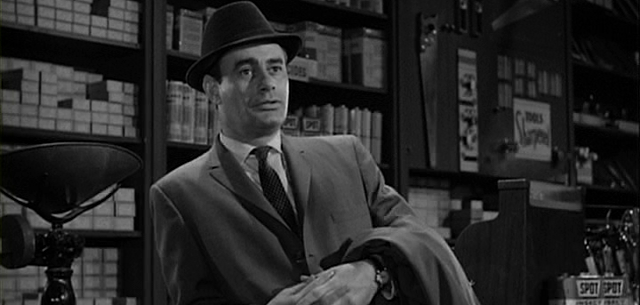Distant Relatives: Psycho and Contagion
 Thursday, September 29, 2011 at 12:01AM
Thursday, September 29, 2011 at 12:01AM Robert here with my series Distant Relatives, which explores the connections between one classic and one contemporary film. A brief warning this week. If you don't know the identity of the killer in the film Psycho, this week's entry includes SPOILERS for you.

What is Horror?
When Steven Soderbergh described his movie Contagion as a "horror film" it seemed like one of those things that directors say to generate a good sound bite in the hope that writers will run with it, which they have. After all, the prospect of a major virus wiping out a good portion of the world's population is nothing if not horrifying. But how much does it really have in common with classics of that genre? The answer probably depends on how you define "horror film." For most people, a horror movie must have some element of either the supernatural or mentally deranged from which the danger eminates. If this is your definition, then Contagion doesn't qualify. But semantics aside, one can still find plentiful similarities between Soderbergh's film and a classic, defining film of the horror genre like Alfred Hitchcock's Psycho.
Psycho is about a killer and the people who come in contact with him. The film starts with a bit of misdirection as Janet Leigh runs off with an envelope full of cash. Soon she meets hotel proprietor Norman Bates, a soft spoken, well meaning, boy next door type, who turns out to be not so well meaning. Then, a surprise death sets the real plot into motion. Over the course of the film we'll spend time with the victim's relatives, investigators and experts. Contagion is about a killer and the peopel who come into contact with it. It too starts with a bit of misdirection involving suburban wife and mother Gwyneth Paltrow and a possible extramarital liason. But this is dispensed with soon, and a surprise death sets the real plot into motion. Over the course of the film we spend time with the victim's relatives, investigators and experts. Of course, in Contagion, the killer isn't a mad man, it's a virus.

...the harmless killer after the jump
Madness, Madness
But both Bates and the bug have something in common. They seem relatively harmless. Sure, Bates is a bit awkward and flu-like symptoms are always a nuisance but neither suggest likely life threatening danger. This device is the real reason that Contagion may still qualify as horror. Beyond the supernatural or the mad, the real danger comes from that which appears safe, something millions of people do all the time: travel, interact. The common fear of Psycho and Contagion is the fear of ourselves and the thought that any otherwise forgettable encounter with another person could end in death. Horror movies, including Contagion emphasize the terror of the random and suggest that a universe we grew up beliving to be harmonious is in fact chaotic. We could die at any moment and there's little to nothing we can do about it. And this is what horrifies us.
The reason why Psycho is the perfect horror companion piece for Contagion is in the method by which both films immediatly suggest the danger of their respective killers. In both cases, the first deaths belong to actresses who have no business dying in the first act, let alone first few minutes of a film. As viewers, we expect that someone famous will live through, or at least, until the climactic scene of a movie (less so since Psycho, thanks to Psycho). Both of these films show us our own weakness in the chaos by quickly dispensing of someone whose screen presence is very powerful. Once they're gone, all bets are off. If they can die, anyone can die. And so we come to understand the power of the killer.

Really Scary
Whether you're still unconvinced that Contagion is a horror film may be beside the point. What's clear is the influence of that genre and specifically Psycho. Understanding the length of Psycho's influence in the horror genre and beyond is overhwhelming. And there's one more important connection that pushes these films closer to each other and farther from other films of their ilk. Both films embrace their own realism. And while, yes, "realism" can mean many things, we can agree that Psycho and Contagion eschew manufactured hysterics, elaborate action sequences and special effects to drive home that most chilling of points: it could happen to you.
Other cinematic relatives: Night of the Living Dead (1968), Jaws (1975), Alien (1979), Scream (1996)



Reader Comments (3)
So true. Also I'd add that the terror of both movies isn't just the seeming innocuousness of their monsters, but the sheer, inescapable NECESSITY of what creates them - human contact, familial bonds, relationships. Whether healthy or unhealthy, we can't survive without these things, which makes our destruction seem all the more inevitable.
I also think that both movies share the same impish sense of humour and the nihilism in the chance that anyone can be killed at random. There's also something funny about how institutions like the police and government handle such deaths.
It's great to hear from you and see what you've been up to. In your blog I feel your enthusiasm for life. thank you. fbegqo fbegqo - red bottom.